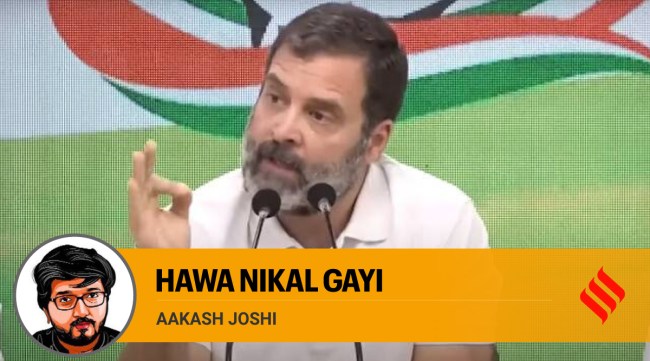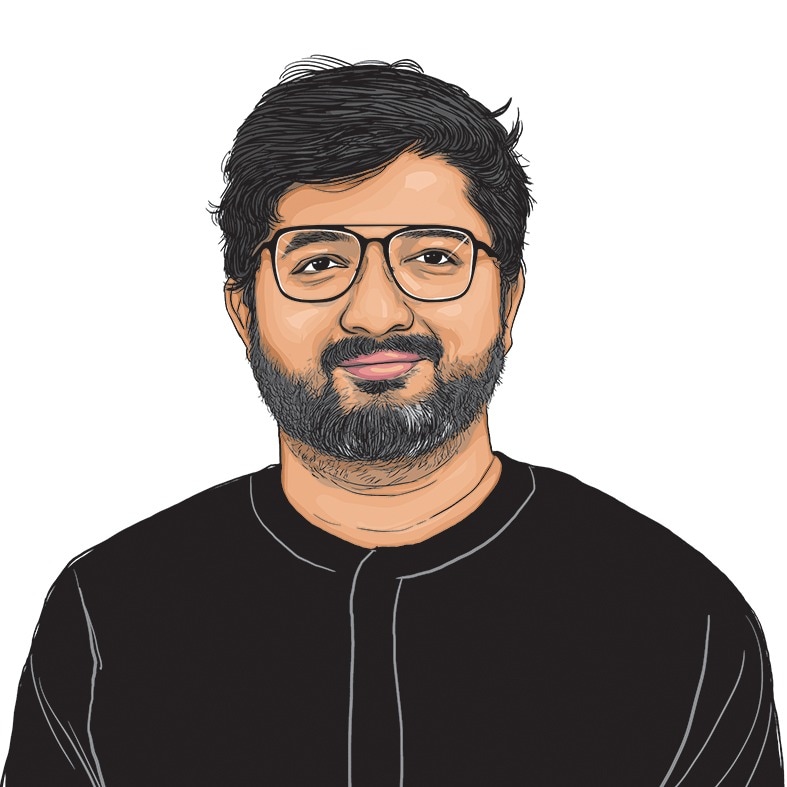Opinion ‘Hawa Nikal Gayi’: Rahul Gandhi’s crude snub to a journalist shows everyone likes a free press – if it is a press they like
There are, of course, sections of the media – like every other profession – that have chosen to act as loudspeakers and cheerleaders rather than interlocutors for the public. But not every uncomfortable question is the result of a “compromised” journalist.
 Congress leader Rahul Gandhi addresses a presser on his disqualification from the Lok Sabha. (Screengrab/ Youtube/ Indian National Congress)
Congress leader Rahul Gandhi addresses a presser on his disqualification from the Lok Sabha. (Screengrab/ Youtube/ Indian National Congress) It is easy to forget, given the last nearly-nine years, that the press conference is, in fact, a staple of most modern democracies. But every few weeks or so, the all-mighty Algorithm throws up a particular kind of video on the social media timelines of liberal Indians, that serves as a reminder. One can view, from archives Indian and international — Jawaharlal Nehru, Indira Gandhi, Morarji Desai… all the way up to A B Vajpayee and Manmohan Singh — the most powerful leaders answering questions. They subjected themselves to scrutiny by reporters – with often combative but rarely disrespectful questions — at press conferences and through interviews that went beyond mangoes, motherhood and apple pie.
That tradition has been changed by the party in power and the Prime Minister. Unfortunately, by attacking a journalist for asking a perfectly legitimate question – doing his job — at a press conference, Rahul Gandhi has indicated that the desire for a pliant and pliable Fourth Estate runs across party lines.
It went something like this: The former MP from Wayanad – disqualified last week from the Lok Sabha after a questionable conviction for defamation during a political speech – was confident and articulate about what he believes is an attempt to silence him. He referred to the Bharat Jodo Yatra as well as the alleged “Adani-Modi” nexus – two themes that have marked his recent public statements. But when a journalist asked him to respond to the BJP’s allegation that the statement he has been convicted for is “anti-OBC”, Rahul decided to shoot the messenger. “Why are you directly working for BJP? If you want to work for BJP, then wear a BJP badge. Don’t pretend to be a pressman… Kyun hawa nikal gayi?” he said. There was, unfortunately, a self-congratulatory tone to “hawa nikal gayi”, a smirk at the satisfaction of a well-placed jibe.
First things first. Asking an Opposition leader to respond to the allegations against him by the party in power is not endorsing the latter’s view. Trying to get Rahul’s reaction to the BJP’s comments is reporting 101. The public has a right to know what is Rahul’s answer to the OBC allegation.
More importantly, Rahul’s attack betrays a lack of appreciation of what a free press is supposed to do. For the health of a democracy, the press cannot be part of the power structure – its job is to ask questions that can often make those on the pulpit and the stage uncomfortable. Its job is to use the privilege of its access to ask questions that the citizen cannot. No matter who holds the press conference, no matter how much the reporter agrees or disagrees with them.
There are, of course, sections of the media – like every other profession – that have chosen to act as loudspeakers and cheerleaders rather than interlocutors for the public. But just as not all politicians are corrupt, and not every act of political rhetoric is defamation, not every uncomfortable question is the result of a “compromised” journalist.
To be fair, Rahul Gandhi has not shunned the media as other, more powerful leaders have done. Throughout the Bharat Jodo Yatra – and even before it – he has taken questions although his interviews, too, have often been soft and choreographed. Yet, one of the aspects of the political persona he wants to showcase has been of someone who listens to the people. That character is undermined with “hawa nikal gayi”. Because, the stage, the microphone and the backing of a political organisation make you more powerful – by many orders of magnitude – than the reporter asking a question.
To put him down for doing his job is not wit – it is bullying.
The Mumbai Press Club has asked Rahul Gandhi to apologise to the journalist. It is a reasonable demand. And, in an era where insults, arrests and attacks on journalists have become far too commonplace – just last week the Chennai police arrested a 23-year-old for sharing a video critical of the DMK government – Rahul should make amends. An apology would be an essential part of the political idiom he is trying to fashion. And it’s the right thing to do.
A footnote: There is a silver lining in the “hawa nikal gayi” episode. Even those deft at using the ruling party’s blunt instrument against detractors, within and outside the press, have celebrated the need for leaders to answer questions they may not like.





